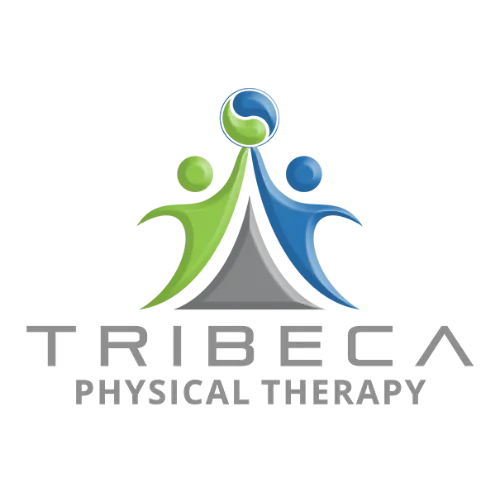Menopause and exercise, how hard can it be? It’s already hard being a woman, the ache we feel for the collective pain is unbearable at times. That includes hormones which causes most of the changes in women’s body. High percentage of women are greatly affected by hormone fluctuations. For some women, it’s smooth sailing, but for others, it’s a shipwreck at every turn of the hormonal bend. Sometimes it gets to the point of feeling totally overwhelmed. Whether it is a premenstrual syndrome or menopausal syndrome it can definitely affect your mood, weight, food cravings – even your desire for sex.
Menopause is the time when your menstrual periods stop permanently, and you can no longer get pregnant. MENO comes from the Greek word which means month or relating to menstruation while PAUSE means any comparatively brief stop, delay or wait. Menopause are a normal part of a woman’s life – sometimes called “the change of life.” Transition to menopause usually starts during perimenopause which normally occurs in a woman’s mid- to late 40s. Imagine putting menopause and exercise together! It can become really difficult. Perimenopause is cycle where a natural decline in reproductive hormones happens. Changing hormone levels during this time can alter the frequency, symptoms, and regularity of a person’s periods. Each person’s experience of perimenopause is different, and changes to the menstrual cycle vary between individuals. Because of these hormonal fluctuations, people may notice the following changes in their periods during perimenopause:
- Less frequent periods. This occurs because people are ovulating less often.
- Longer, heavier periods. This happens because the lining of the uterus has time to grow thicker and takes longer to shed.
- Lighter periods. People may experience lighter periods when their estrogen levels are low. This is because estrogen increases the thickness of the uterus lining.
- Irregular periods. People may have irregular periods, spotting between periods, or both, when the uterus lining grows thicker than usual.
- Changing menstrual symptoms. People may also notice an increase or decrease in their menstrual cramps and other symptoms.
On average, women are in perimenopause for four years before their periods stop. Menopause does not happen all at once, it is signalled by 12 months since last menstruation. Most women will experience menopausal symptoms such as hot flushes, night sweats, vaginal dryness and discomfort during sex, difficulty sleeping, low mood or anxiety, reduced sex drive (libido), and problems with memory and concentration. Some of these can be quite severe and have a significant impact on your everyday activities.
If you are starting to experience symptoms of menopause, the most important noncontroversial and simple thing everybody can and should do is to exercise. Some of the benefits you can get are:
1. Exercise increases the cardiorespiratory function. If done regularly, it reduces the metabolic risks associated with declining estrogen. It increases HDL, reduces LDL, triglycerides and fibrinogen. There is an additional benefit of a reduced risk of high blood pressure, heart attacks, and strokes.
2. Exercise can help create a calorie deficit and minimize midlife weight gain.
3. It increases the bone mass. Strength training and impact activities (like walking or running) can help to offset the decline of bone mineral density and prevent osteoporosis.
4. It also reduces low back pain.
5. It is proven to help reduce stress and improve the mood.
6. It may help to reduce hot flashes, thereby minimizing the “Domino effect.”
You may wonder whether physical therapy can help in some way. The answer is yes! We can customize treatments to address the areas the most important to your current and future health. Physical therapy can help with these common issues associated with menopause:
- Bone density, strength and balance. Using free weights, weight machines or exercise bands, you will strengthen muscles and maintain bone density, balance and flexibility to reduce the risk of falls and of serious fracture if you do fall. Bonus: Building muscle increases metabolism—the rate at which you burn calories—even at rest.
- Flushes and weight gain. While these issues have some association with reduced hormone levels, research indicates that regular aerobic exercise can keep them in check. If you do not have a favorite sport, such as biking or tennis, that promotes aerobic conditioning, we will help you design a low-impact walking or swimming plan to help you become much more physically fit and less susceptible to these symptoms.
- Insomnia. Therapeutic massage is effective for menopause-related insomnia. Massage can also help alleviate other difficulties sometimes associated with menopause, such as anxiety and depression.
- Painful intercourse. Dyspareunia—experiencing pain before, during or after sexual intercourse—affects millions of women. When the root cause rests with pelvic tissues and muscles that need to be relaxed and/or strengthened, several months of pelvic floor physical therapy can make a significant difference. We can teach you specific exercises you can perform yourself, along with how biofeedback can help you track your progress. Special soft tissue techniques may also help alleviate dyspareunia.
- Urinary incontinence. Pelvic floor physical therapy can help with this problem, too. We can teach you the proper way to do classic Kegel exercises, the repeated contraction and release of the pelvic muscles, including those that surround the bladder and affect urinary flow.
Do not be embarrassed about consulting us at Tribeca Physical Therapy. We are trained to help patients at all stages and phases of life including menopause and exercise. Early intervention is key to keeping everything under control and helping you feel comfortable during this period of your life.
Tribeca Physical Therapy is officially reopened for in-person physical therapy sessions and continues to offer Telehealth PT or Virtual PT. Call us at 2124068080 or message us and book your first session free.



